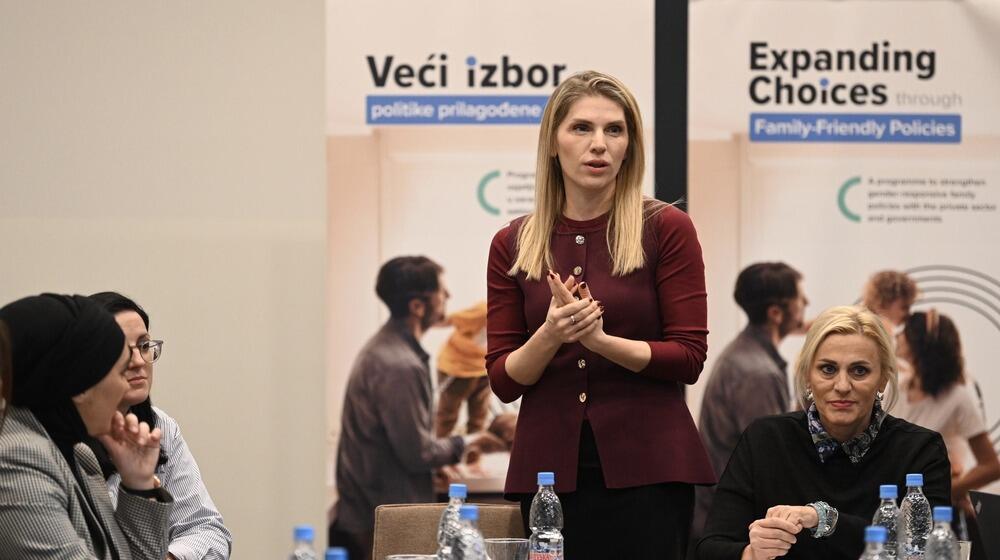Sarajevo, 9 December 2024 – Today, the UNFPA, the United Nations Population Fund, in partnership with the Committee on Gender Equality, the Committee on Labour and Social Protection, and the Committee on Economic and Financial Policy, held a thematic session titled “Session on Gender-Responsive Family Policies with the Parliament of the BiH Federation”.
Alma Kratina of the Committee on Gender Equality emphasized, “In a society where the issue of gender equality is not yet recognized as an issue of the prosperity of society as a whole, it is necessary to keep emphasizing all the barriers in order to make particularly vulnerable groups of women, who bear the burden of unpaid work and care for older family members and children, competitive in the labour market. These barriers need to be removed, and in this regard, due to the general lack of social dialogue, it is extremely important to raise the issues of amending the legislation for the benefit of both workers and employers”.
Members of Parliament, representatives of relevant institutions and CSOs discussed the need for harmonizing the legislative framework at the level of the BiH Federation with the EU Directive on Work-Life Balance.
“There is a significant imbalance in the employment of women in the BiH Federation, which may have long-term consequences for the economic growth and development of this entity”, said Professor Kadrija Hodžić, member of the Committee on Economic and Financial Policy. “The inclusion of a larger number of women in the workforce, as well as their empowerment through better wages, education and adequate social policies, stimulates long-term economic growth, the strengthening of fiscal revenues and an increase in social cohesion in society. Therefore, these opportunities should be adequately included in appropriate systemic laws, primarily the Labour Law, including nearly twenty laws adopted in more than ten different administrative units”.
“I am extremely pleased that this session has been organized, and I am convinced that future sessions will result in effective conclusions seeking amendments to the Labour Law. It is necessary to include also the private sector, employers and all other associations that can help, and to reach a consensus of all parties involved. Ultimately, our goal is to draft labour laws, but also all social laws, in a way that is best for the citizens of the Federation of Bosnia and Herzegovina”, said Fuad Abaspahić of the Committee on Labour and Social Protection.
This important event, held in Sarajevo, was part of the global “16 Days of Activism against Gender-Based Violence” campaign and focused on the pivotal role of gender-responsive policies in promoting women's economic empowerment.
During the session, the UNFPA showcased its model for gender-responsive workplace policies that are designed to dismantle harmful gender norms, roles, and stereotypes that traditionally confine women to caregiving roles. This approach not only strengthens families and increases equality but also boosts economies and better positions countries to address demographic changes.
Marina Ridjic, the UNFPA Assistant Representative, highlighted the session's significance: “Creating an environment where women can make informed decisions regarding family and the labour market is crucial for sustainable and gender-responsive development. To truly expand choices for women to fulfill their career, family, and fertility aspirations, gender-responsive family policies must be implemented at all levels of governance”.
The session was organized within the Joint Programme “Expanding Choices Through Family-Friendly Policies in Bosnia and Herzegovina, funded by the Austrian Development Agency (ADA), and implemented by UNFPA.


